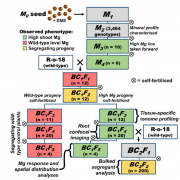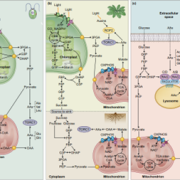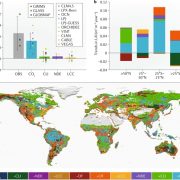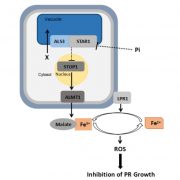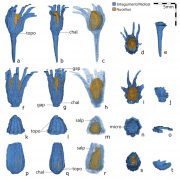Phosphorus limitation limits carbon storage in CO2-enriched mature forests
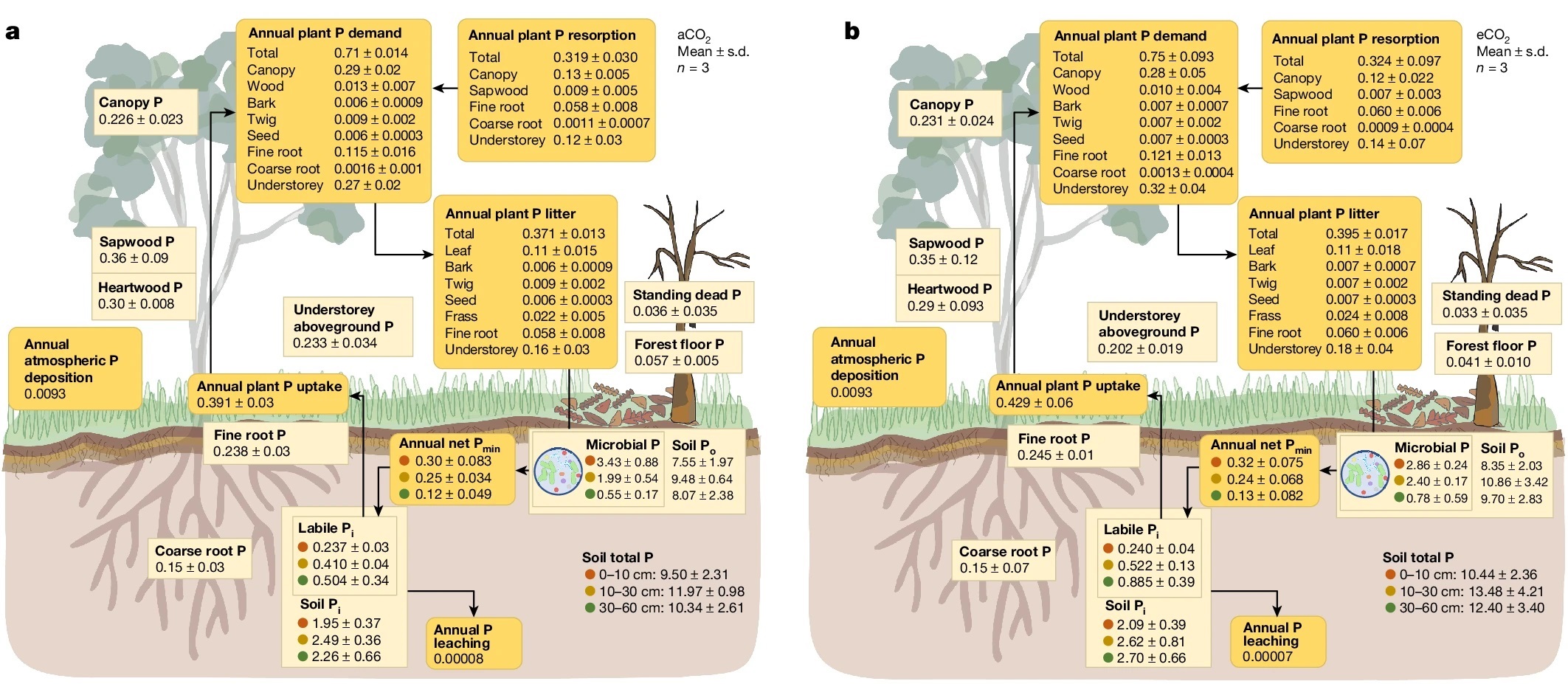 Plants fix carbon dioxide to generate biomass, and in many cases increasing the availability of CO2 enhances plant growth. However, some studies have shown that although yields of food crops such as rice might increase, their nutritional value decreases, due to limitations in availability of minerals such as iron and zinc. In this study by Jiang et al., the authors used a Free Air CO2 Enrichment (FACE) system in a eucalyptus forest. Previous studies showed that although CO2 led to increased photosynthesis, this was not reflected in increased biomass. Instead, it led to an increase in root exudation of carbon compounds. The authors speculated that this response might serve as a recruitment signal to soil microbes to aid in plant phosphorus (P) uptake. They undertook a thorough analysis of ecosystem-scale P budget for a mature eucalyptus forest growing in soils with low P-availability (typical of Australian soils). The authors found that: a majority of P in the soil system was present in microbes, enhanced CO2 had little impact on P availability or soil microbe composition, and the competitive superiority of soil microbes with respect to P uptake limits tree growth response to elevated CO2. These findings will be useful in Earth-system models of elevated CO2. (Summary by Mary Williams @PlantTeaching) Nature 10.1038/s41586-024-07491-0
Plants fix carbon dioxide to generate biomass, and in many cases increasing the availability of CO2 enhances plant growth. However, some studies have shown that although yields of food crops such as rice might increase, their nutritional value decreases, due to limitations in availability of minerals such as iron and zinc. In this study by Jiang et al., the authors used a Free Air CO2 Enrichment (FACE) system in a eucalyptus forest. Previous studies showed that although CO2 led to increased photosynthesis, this was not reflected in increased biomass. Instead, it led to an increase in root exudation of carbon compounds. The authors speculated that this response might serve as a recruitment signal to soil microbes to aid in plant phosphorus (P) uptake. They undertook a thorough analysis of ecosystem-scale P budget for a mature eucalyptus forest growing in soils with low P-availability (typical of Australian soils). The authors found that: a majority of P in the soil system was present in microbes, enhanced CO2 had little impact on P availability or soil microbe composition, and the competitive superiority of soil microbes with respect to P uptake limits tree growth response to elevated CO2. These findings will be useful in Earth-system models of elevated CO2. (Summary by Mary Williams @PlantTeaching) Nature 10.1038/s41586-024-07491-0


